While on vacation earlier this month I picked up a copy of Socrates: A Drama in Three Acts by the great Lister Sinclair. (It was published in 1957 by the Book Society of Canada, whose archives are at McMaster.) Among many other things in a rich life, he hosted the CBC Radio show Ideas for about fifteen years. For me it was mandatory listening. His range of knowledge (in math, he studied under HSM Coxeter, but that was just the beginning), and his love of exploring things with the listener, was remarkable. Lister Sinclair was one of the most interesting and interested people I have ever heard.
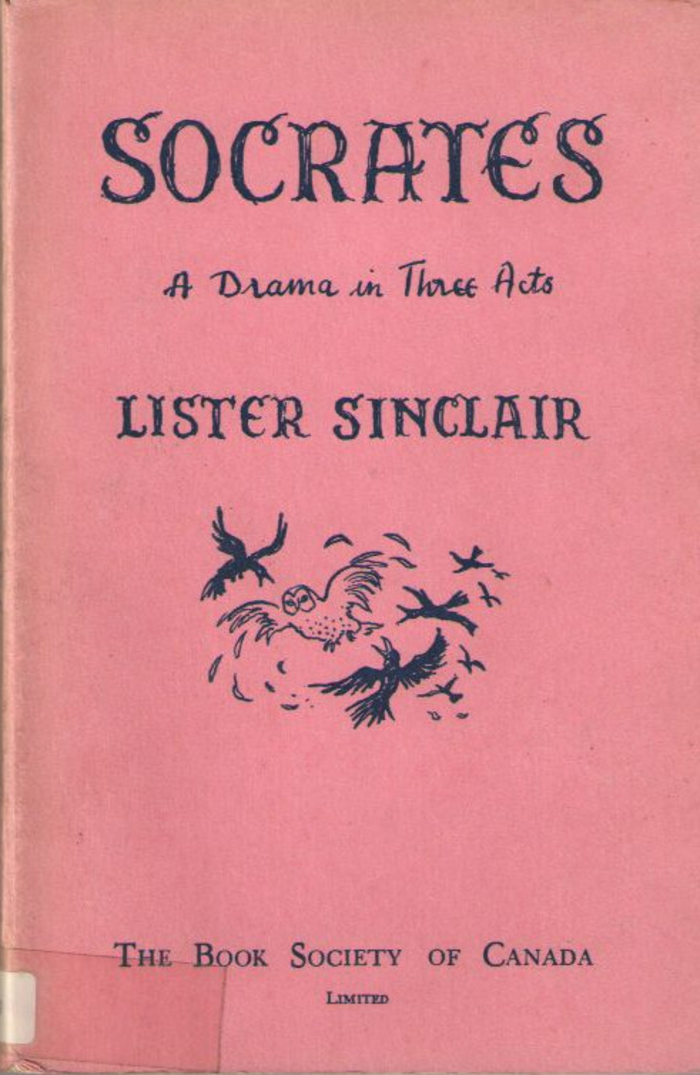
Setting aside the content of the play, which draws on a handful of Plato’s dialogues, I was struck by the notes someone wrote on the inside cover. It’s a list of authors to read, with recommended titles. Where did the list come from? Lister Sinclair?
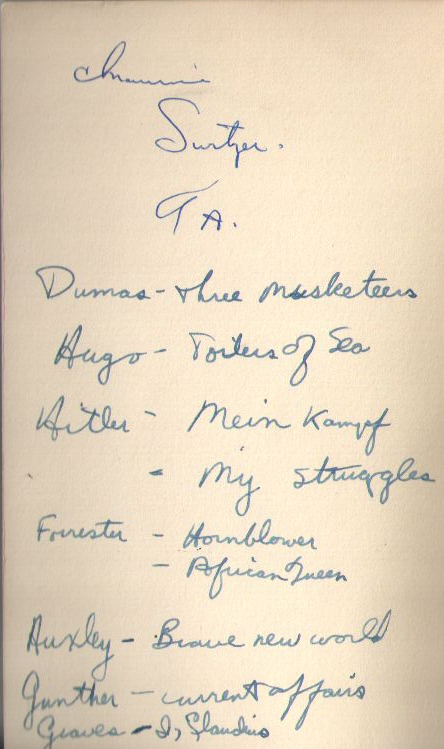
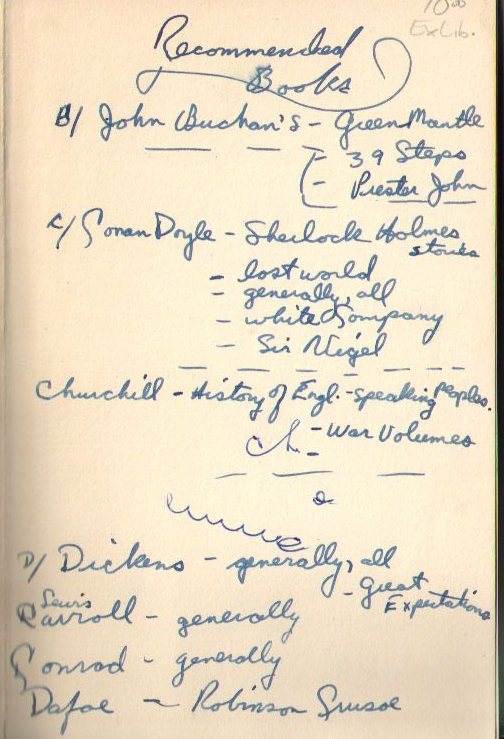
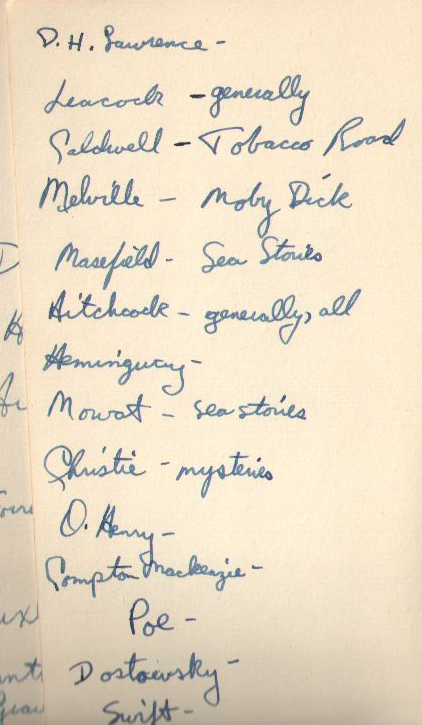
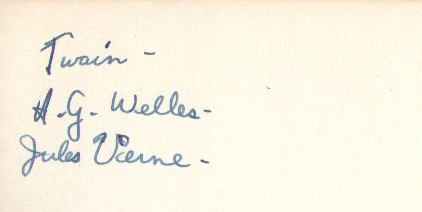
This is what’s written:
- Alexandre Dumas, Three Musketeers
- Victor Hugo, Toilers of the Sea
- Adolf Hitler, Mein Kampf
- C.S. Forester, Hornblower series and The African Queen
- Aldous Huxley, Brave New World
- John Gunther, “current affairs”
- Robert Graves, I, Claudius
- John Buchan, Greenmantle, The Thirty-Nine Steps, Prester John
- Arthur Conan Doyle, Sherlock Holmes stories, The Lost World, “generally, all,” The White Company, Sir Nigel
- Winston Churchill, A History of the English-Speaking Peoples
- Charles Dickens, “generally, all,” Great Expectations
- Lewis Carroll, “generally”
- Joseph Conrad, “generally”
- Daniel Defoe, Robinson Crusoe
- D.H. Lawrence
- Stephen Leacock, “generally”
- Erskine Caldwell, Tobacco Road
- Herman Melville, Moby Dick
- John Masefield, “sea stories”
- Alfred Hitchcock, “generally, all”
- Ernest Hemingway
- Farley Mowat, “sea stories”
- Agatha Christie, “mysteries”
- O. Henry
- Compton Mackenzie
- Edgar Allan Poe
- Fyodor Dostoevsky
- Jonathan Swift
- Mark Twain
- H.G. Wells
- Jules Verne
Leaving aside Mein Kampf, I’d skip Leacock, who I think overrated, but that’s a fine list. John Gunther is forgotten now, but I know him as a guest on Information Please. Hitchcock stands out, not being a writer, but “generally, all” is a perfect recommendation to make about his films. If you were headed out to a cabin in the woods for a few months in 1957, when this book was published, this would have been a good library to take with you (and if it was 1958 and you had a projector you could take Vertigo).
Inside the back cover is this: “Truth, Beauty, Justice} = God.”
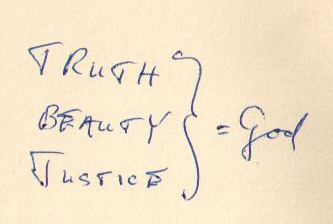
Who wrote this?
 Miskatonic University Press
Miskatonic University Press